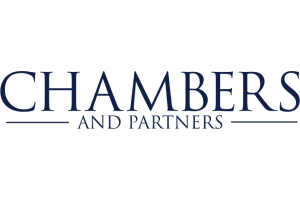Litigation Lawyers
Domain Name Disputes
Los Angeles Domain Name Disputes Lawyers
While many attorneys use the Web as a resource, very few understand how to appropriately respond to Internet-specific legal issues such as domain name disputes. At Syverson, Lesowitz & Gebelin, LLP, our Internet law attorneys have handled a number of domain name issues ranging from cybersquatting and trademark violations to ICANN’s top level domain name extension auction process. We represent companies in domain name dispute litigation.
California Trademark and Domain Rights Attorneys
This is perhaps the most interesting period in the short history of domain name rights. That is because the Internet Corporation for Assigned Names and Numbers (“ICANN”) is currently overseeing an unprecedented expansion of internet real estate. ICANN is evaluating hundreds of applications for new top level domains such as “.software” and “.beer”. Each application cost $185,000 and many of the largest internet and tech companies such as Google and Amazon are competing with each other for the new extensions. ICANN is overseeing the process and will conduct auctions for top level extensions with multiple applications.
The new domain name gold rush will likely lead to a wave of trademark infringement and counterfeiting litigation. Modern counterfeiting occurs online and the slew of new top level extensions provides a rich environment for confusingly similar domain names as well as additional counterfeiting platforms. For example, the owner of “.coffee” could impersonate Starbucks with a “starbucks.coffee” domain. As such, brand owners are expected to incur increasing litigation and brand enforcement costs. ICANN is aware of the issue and has instituted a trademark clearinghouse which allows brand owners an exclusive registration period to register second level domains before the public.
As one of the country’s top internet law firms, we are well positioned to defend and prosecute trademark infringement cases arising under ICANN’s new top level domain auction. As plaintiffs in enforcement actions, we understand the relief available to trademark owners. Monetary damages are important but often infringers are judgment proof or located in foreign jurisdictions. We understand how to obtain injunctive relief for brand owners and work with third party internet service providers to shut off sources of infringement. We also understand jurisdictional issues because most online counterfeiting occurs overseas.
As defendants, we understand that brand owners often overreach and abuse the scope of their claimed trademark protection. In these cases, we are able to oppose a plaintiff’s claim and seek affirmative relief under the Lanham Act. The Lanham Act provides for damages to defendants whose domains and property have been wrongfully seized by overreaching seizure orders.
Trademark Violations and Domain Names
Companies that own trademark rights attempt to apply those rights as broadly as possible on the Internet. Lawyer Erik Syverson and our legal team represent defendants and plaintiffs in trademark infringement cases involving domain names.
Companies who have had their trademark rights violated by domain use generally have two options for relief. The first is a federal lawsuit under the Lanham Act for cybersquatting and trademark infringement. The second is an arbitration process pursuant to ICANN’s Uniform Domain Name Dispute Resolution Policy (“UDRP”). Under the UDRP, most trademark-based domain name disputes must be resolved by agreement, court action or arbitration before a registrar will cancel, suspend or transfer a domain name.
Cybersquatting Attorneys
Domain name disputes have traditionally revolved around trademark rights and disputes regarding domains that are confusingly similar to the left of the “.com”. In the past, parties registered domains confusingly similar to a well-known brand simply with the hope of re-selling the domain to the brand owner. The practice is known as domain name squatting because the domain registrant does not actually conduct any legitimate business on the domain. The federal government enacted legislation granting brand owners a cause of action to sue domain name squatters under the Lanham Act. The statute is codified at 15 U.S.C. § 1125(d) and referred to as the Anticybersquatting Consumer Protection Act (“ACPA”).
Plaintiffs in cybersquatting cases must prove that the defendant had a bad faith intent to profit from the domain. Courts look to a variety of factors in determining bad faith including:
- Whether the registrant owns intellectual property contained within the domain;
- Whether the registrant previously used the domain in connection with the legitimate offering of goods or services;
- Fair use of the domain under trademark law;
- Whether the registrant attempted to license or sell the domain back to the trademark holder without first using the domain for a legitimate commercial purpose; and
- Misleading registration contact information
Contact Our California Domain Name Dispute Attorney
For more information about domain name disputes, contact our Los Angeles law firm online or call 213-944-0098 today.




